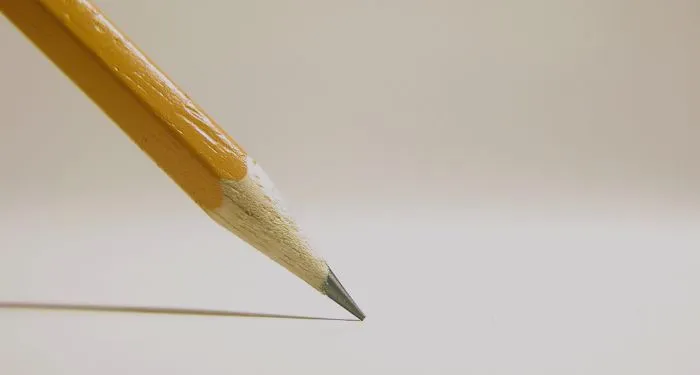In mid-February, just ahead of Volodymyr Zelensky’s ill-fated visit to the White House, a thirty-year-old engineer from Kharkiv named Vladyslav Voronin submitted an online petition to the Ukrainian president’s office. “Dear Mr. President, I understand the unprecedented pressure you are under,” he wrote, “However, I want to emphasize that any agreements concerning the extraction and export of rare earth minerals must be based solely on the long-term interests of Ukraine and its citizens.”
At the time the details of the mineral agreement between the US and Ukraine were still being worked out, and Voronin—who works for Ukraine’s National Research Institute of Ecology and has a doctorate in earth science—urged Zelensky to take a “maximally balanced approach” to the negotiations. He did not want to see Ukraine’s mineral deposits, which make up approximately 5 percent of global reserves, given away in the same manner that its natural resources were depleted and seized under Russian and, later, Soviet rule. Ukraine occupied a critical position in the Soviet nuclear supply chain; radioactive waste from Ukrainian uranium mines made its way into the nation’s soil and groundwater, where it remains today. “History has already taught us bitter lessons: Ukraine has repeatedly fallen victim to external control and resource depletion,” Voronin wrote. “It is extremely important not to allow a similar scenario to repeat, in which our state would once again be left without its own wealth, and Ukrainians—without a decent future.”
The petition was posted on the official website of the president of Ukraine, where any citizen or resident can submit or sign a plea addressed to the government (1,813 added their names to Voronin’s). Ever since the government introduced the service in 2015, civilians and military personnel have routinely used it to submit appeals and request relief from the effects of war. The president is constitutionally obligated to consider any petition that garners 25,000 signatures within ninety days; official responses are posted alongside the original text.
Over the past decade the site has become a living archive of wartime Ukraine, an open record of popular concerns. Researchers around the world have continuously polled Ukrainians about their experiences and opinions of the war; several of those surveys report increasing openness to a negotiated peace and territorial concessions. But these letters offer a more detailed window into public sentiment. They convey a profound desire to secure state recognition for the war dead, an urge to exert some small influence over national affairs, and widespread concern over conditions at the front.
*
In the early years of the conflict, before the full-scale invasion of February 2022 brought the war into every home, the site was populated with petitions protesting domestic corruption and foreign influence, among other concerns. In 2015 the letters that made it to the president’s desk included requests that officials imprisoned for corruption be denied bail, that the president institute large fines for littering, and that separatists be stripped of their citizenship. In 2017 a businessman asked that the Russian social networking site Vkontakte be unblocked (the request was denied on national security grounds); in 2018, back when Ukraine’s civilian airspace was still open, residents of Dnipro sought funding for a new airport runway.
There were also calls for Russian culture to be excised from Ukrainian life. Multiple petitions for the removal of Odesa’s famous statue of Catherine II were referred to the city’s municipal council. In 2022 one citizen suggested that the statue be swapped for Ukrainian prisoners of war; if Russia refused, the writer argued, the remnants of Catherine ought to be sold as scrap metal and the proceeds sent to the army. (The monument was ultimately taken down that December.) Some citizens demanded that Russian artists be banned from holding concerts in Ukraine until the return of Crimea and the securing of the eastern border, while others asked the government to prohibit the import and distribution of books from Russia. (A law to the latter effect was ultimately passed in June 2023.)
But over the past three years the appeals have assumed an increasingly plaintive and grimly realist tone. Virtually all the submissions are now pleas for fallen loved ones to be granted posthumous military honors, turning the forum into, in effect, a place where deaths are recorded, a site of public mourning. New requests appear every day, sometimes dozens at a time. A friend in Kyiv told me that she often logs on to sign them, to help each family secure the formal recognition they crave.
To scroll through the list is to begin to take in the volume and nature of the loss. A son writes to request that his father, Volodymyr, be recognized in death as a “Hero of Ukraine,” the highest state honor; a wife seeks the decoration for her husband, Kostyantyn; a mother for her twenty-two-year-old son, killed by rocket fire while fighting in the Kursk region of Russia. Some letters are only a few sentences long, while others offer abbreviated life stories of the deceased and speak to the suffering of those they left behind: a twenty-nine-year-old driver survived a drone strike only to have his heart stop in the hospital; the wife of a volunteer fighter has now been widowed twice over; a soldier’s remains were finally identified via DNA testing in late May, after he had been considered missing for over a month. Each of these petitions is either still collecting signatures or awaiting presidential response.
In one letter a woman named Yuliya Kulyk writes in on behalf of her son Yevheniy, who fought with the French legion before voluntarily returning to Ukraine in 2022. He was killed in battle in Donetsk in 2023 while trying to protect his fellow soldiers. His mother writes that while she is thankful to his commanders, who were able to recover his body and give him a proper military burial, and to his hometown, which named a street after him, “even this cannot ease the pain that pierces a mother’s heart, because Yevheniy was my only child.” In May Zelensky responded to this “sincere maternal request” by awarding Kulyk’s son the Order for Courage, third class.
*
If death is one of the forum’s primary subjects, the other is the impossible debate over demobilization. Under martial law, conscripts have little idea when they will be discharged; many who had volunteered before 2022 have already served twice their contracted time and know that the longer they stay in conflict zones the likelier they are to be injured or killed. Yet while soldiers are eager to return home, they are also aware that there are not enough men left to replace them. A recent study found that the Ukrainian military has sustained 400,000 casualties during the war, including between 60,000 to 100,000 deaths. (Russian military casualties are now estimated to have surpassed 1 million.) Between mass emigration, decimated birth rates, and war deaths, the conflict has also pushed the country into what researchers have called a “demographic abyss.”
A recent amnesty for deserters who return to battle and aggressive investigations into draft-dodgers have not sufficed to replenish the ranks. Slava Balbek, a Ukrainian architect who is part of a drone army unit, observed on social media that these days he sees far more people collecting funds for funerals than volunteering to go to the front. In the face of this demographic crisis, Zelensky has bluntly called mass demobilization impossible, telling the Italian newspaper Il Foglio in January that “if, for example, tomorrow half of the army simply just goes home…Putin will kill us all.” (Demobilization across Ukraine was reportedly one of the Russian Federation’s demands in the “peace memorandum” it submitted on June 2.)
As Ukraine attempts to defend its territory with fewer and fewer soldiers and inconsistent arms supplies, some letter writers have used the forum to urge the government to fortify the armed forces at whatever cost. Late last month one petitioner asked the president to do something about the “catastrophic situation” by calling up local reserves and military pensioners. A popular petition from 2023 advocated for mobilizing members of parliament. (In January Zelensky responded by explaining that during World War II American lawmakers only joined up voluntarily, and that maintaining a functioning legislature was a matter of national security.)
Letter writers have repeatedly asked for clarity about when their relatives or they themselves will at last be permitted to leave the service. One man wrote in November 2023 to propose a system of temporary demobilization, which would allow fighters to recuperate before returning to the front. “It is time to change the strategy from ‘a little more and it will be over’ to ‘maybe this will drag on for a long time,’” he wrote. “The army should not become a prison.”
Other citizens have also put forward policy ideas. A man asked last July that the age limit for mobilization be lowered from sixty to fifty to “improve the economic situation” in Ukraine, which suffered severely from the full-scale invasion and now faces a 16 percent inflation rate. In June 2023 a woman wrote to request that soldiers who manage to return from Russian captivity be permitted to resign from the military, or at least to defer their return to the battlefield; in January Zelensky responded, informing her that a newly passed law on mobilization contains an exception for former prisoners of war, allowing them to leave service at their request. (As a result of US pressure, the law also lowers the age limit for conscription from twenty-seven to twenty-five years old. Anyone over eighteen can enlist voluntarily, and the government is encouraging them to.)
In 2023 a member of parliament wrote to ask that the president support his proposed law on demobilization, which would permit soldiers to leave the military after eighteen-month tours. “For more than a year, our military have been at the front and do not understand how much longer they will have to be there, and there is an urgent need to regulate the terms,” he wrote. “The uncertainty of service terms has led to the deterioration of the moral and psychological state of the military.” He pointed out that the soldiers who have been serving the longest are the ones who voluntarily enlisted in 2022. The bill failed in parliament. Zelensky responded on the petition website this January to say that his cabinet was working on other options.
Late last year the Ministry of Defense prepared a draft law that would allow for discharge after three years of service and eighteen months of combat—but it was withdrawn this spring when the generals objected. According to Ukrainska Pravda, 108,000 soldiers would be eligible to go home under its terms; without an immediate infusion of new fighters the frontlines would collapse. “Our trenches are empty; what kind of demobilization can there be?” one soldier told the paper. Positions once maintained by twelve fighters, he said, are now manned by only two.
*
The petitions have also provided soldiers and civilians alike with another avenue to express support for the armed forces and seek improvements for military conditions on the front. There is an urgent request for more kamikaze drones and a petition demanding that women in the armed forces be provided with hygiene products, so they don’t have to worry about having supplies while on active duty. One writer argues that rank-and-file soldiers should be given titular promotions this year as a small token of encouragement.
There are appeals for the government to stop spending money on repairing roads, parks, and stadiums, and instead send any available funds to the army. As of this writing, one of the petitions with the greatest number of votes was submitted by an OnlyFans model, calling on the government to decriminalize pornography. (Sharing nude photographs is a potentially criminal offense in Ukraine.) She framed her request in military terms: “Over five years, I have paid more that 40 million hryvnia [$959,445] in taxes,” she wrote, an amount that, she argued, was enough to finance “a hundred pick-up trucks or two thousand First-Person View drones for the Armed Forces of Ukraine.”
Other appeals express resentment toward elected officials and strong support for the armed forces. One letter writer asks that the government stop giving bonuses to members of parliament and offer raises to military personnel instead; another calls on the president to strip politicians of their legal immunity; a third argues that any civil servant found guilty of corruption during the war should be imprisoned for life. In this, they reflect widespread sentiment. The army is by far the most trusted public entity in Ukraine; a late 2024 poll reported that parliament, courts, and the central government, on the other hand, meet with high levels of distrust.
The most pointed letters seek help recovering loved ones who have gone missing or been taken captive by Russian forces. The UN Human Rights Monitoring Mission in Ukraine recently reported that almost all returning prisoners of war have provided accounts of torture and ill-treatment while in Russian captivity; its staffers also recorded “an alarming spike in reported executions of captured Ukrainian soldiers by Russian armed forces” since last summer. (The Red Cross says that it has not been given “full access” to prisoners of war; Russian authorities have blocked the organization from visiting POWs on their territory.) Every week family members of missing soldiers rally in Kyiv to demand action from the government and greater transparency from the military.
“The reality is that we remain totally in the dark. We do not know where they are, what happened to them, or whether there is any hope of their return,” one woman wrote in a December petition, calling for negotiations to retrieve prisoners. Another woman whose relative was taken captive begs the president to work with a third country to facilitate the release of those who are being “held like animals” and tortured; she says she has already exhausted her other options, having written to the Red Cross and the Security Services.
Reports of mass casualties and disappearances at the front have contributed to the desperation of these appeals. “Where are our boys?” asked a woman who wrote in 2023 to demand that the president investigate the “large number” who had gone missing from the Thirtieth Mechanized Brigade. “Our fathers, sons, husbands and brothers disappeared without a trace.” The Ukrainian Interior Ministry estimates that 70,000 people are currently missing as a result of the war, including 2,470 children; these numbers include both soldiers taken from the battlefield and civilians abducted from occupied zones.
Throughout the war the two countries have conducted prisoner swaps, which include Ukrainian civilians—among them children—abducted from their homes by Russian forces. Ukraine continues to push for an all-for-all prisoner swap as part of any potential peace agreement, but many letter writers feel that the government could still do more to repatriate its people. In 2024 a woman posted on the forum that she had no idea where her loved one was, that he had disappeared at the front, but no one had told her when, where, or why. “This is not only my personal tragedy, but also a painful reality for many families in Ukraine,” she wrote. “This problem is extremely acute on all front lines, where servicemen are disappearing en masse.” She was petitioning, she explained, on behalf of all families of soldiers, asking for better conditions at the front, for improvements to the hotline for military families to call for help, and for commanders to be audited and forced to take responsibility for negligence in battle. “We understand that the war is extremely difficult and dangerous, but we believe our loved ones deserve to come home alive!”
The letters convey just how hard and long Russia’s war on Ukraine has been: how many mourning parents, spouses, and children it has created, how many dead and disabled. On June 6 a young woman wrote on behalf of her father, Oleksandr, who joined the armed forces in 2015, because “the heart of a patriot always beat in his chest.” In 2022 he volunteered again. He was missing for almost nine months before his body was finally recovered; he was buried on his wedding anniversary last year.
In late June, as Russia bombarded Ukraine with relentless drone attacks, killing civilians and wounding hundreds of people across the country, a citizen wrote to request increased air defenses and ask the president to work with allies to secure greater protection for the country’s troops. Shortly thereafter the US halted the planned delivery of air defense systems to Kyiv, only to reverse course a week later. A true cease-fire, to say nothing of lasting peace, remains a distant possibility. Until that day comes, Ukrainians will live with the grim conditions of a war the world would increasingly like to forget, a war whose terms have often been dictated from afar. The mineral deal that Voronin protested has long since been signed. And every day more petitions are posted, bringing news of the dead.



















 English (US) ·
English (US) ·